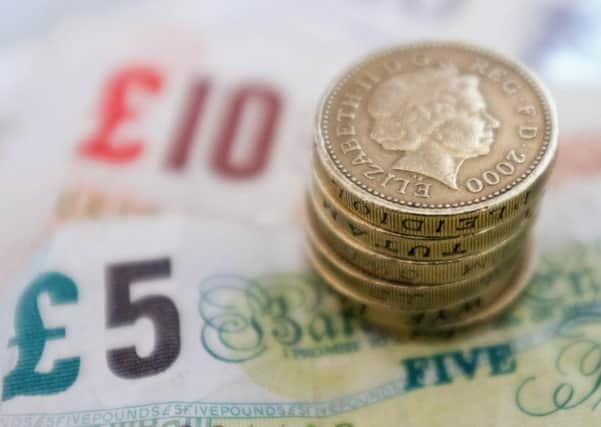Financial bombshell threat to hard-up Yorkshire families


Years of increased borrowing, raised costs and a lack of savings have left many hard-pressed families trapped in a debt spiral that is proving difficult to escape and experts warned a rates hike could pile on the pressure and tip some into crisis.
UK consumers remain among the most indebted in the world and figures obtained by the Yorkshire Post from the debt charity StepChange show during the first nine months of 2013 the average person in touch with the organisation in the region owed £13,270 on credit cards, loans and other unsecured debts. The figures also reveal those they have helped in affluent parts of Yorkshire such as Harrogate and parts of York tend to owe significantly more than other parts of the region.
Advertisement
Hide AdAdvertisement
Hide AdWhile a rate hike may prove a welcome boost for savers and those with pensions who have been hammered by poor returns, experts fear many households may be ill-prepared for a rise.
A StepChange spokesman said: “Debt can affect anyone. The majority of the people we see have got into debt due to a sudden change in circumstances, redundancy, reduced hours or illness. The reason for the higher debts in more affluent areas is that people who earn more have access to higher levels of credit – so when they get into financial difficulty, they tend to do so at higher levels.
“It’s often the case that people have existing debts and add to these over the Christmas period. We see increases in the number of calls we get in the first few months of the year, as the reality of people’s situations often becomes clear.”
According to the Bank of England’s figures, UK household debt has reached a record level, with individuals owing a total of £1.43 trillion, including mortgage debt, slightly above the previous high. The Bank of England has said interest rates could go up when unemployment reaches seven per cent. Latest data show unemployment at 7.4 per cent, with some experts predicting the issue could be on the agenda sooner rather than later but others believing if inflation pressure is subdued rates will stay low as the economy recovers.
Advertisement
Hide AdAdvertisement
Hide AdGary Shaw, financial services director at accountancy firm PwC in Leeds, said: “According to our latest UK Economic Outlook report, spending on housing and utility bills has seen a strong increase from around 13.5 per cent of total household spending in 1963 to around 26 per cent in 2012, and is expected to rise further to around 30 per cent by 2030 as a result of rising utility prices and the housing market picking up.
“Coupled with low increases in wages, a rise in mortgage rates could put increasing stress on household budgets. Consumers are still vulnerable to rate rises. We calculate that with all other things being equal, a one per cent increase in borrowing costs would result in the average household needing to pay an extra £550 a year to service their debts.”
Figures for the first nine months of 2013 raise fears high-earning households with easy access to credit in the good times are struggling to make repayments at a time when incomes are squeezed and there are fears the situation could worsen if interest rates go up.
The figures show the average person contacting it for advice in Harrogate owed £17,005 in unsecured debts such as credit cards and loans. In York the figure was £14,376, while in Bradford £12,707 was owed. In Leeds the figure was £12,846, in Sheffield £12,821 and in Hull it stood at £12,418.
Advertisement
Hide AdAdvertisement
Hide AdThe Bank of England has, however, pointed out that, relative to income, debt levels have been falling. The ratio of debt to household income has declined from 167 per cent at the start of the financial crisis, to 140 per cent now.